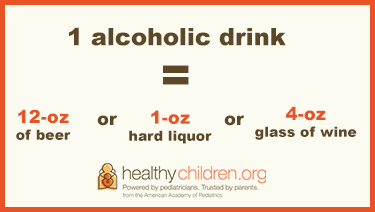Alcohol passes through your breast milk to your baby, so the American Academy of Pediatrics (AAP) recommends avoiding drinking alcohol while breastfeeding.
What You Should Know:
Drinking beer
does not increase your milk supply, as urban myth(s) suggests.
Consuming alcohol of any kind may decrease the
amount of milk your baby drinks.
Alcohol can change the taste of your milk, and some babies may not like it.
Breastfeeding your baby while consuming alcohol can pose a risk to your infant if he or she consumes breast milk with alcohol.
Expressing or pumping milk after drinking alcohol, and then discarding it ("pumping and dumping"),
does NOT reduce the amount of alcohol present in your milk quicker. As your alcohol blood level falls over time, the level of alcohol in your breast milk will also decrease. Breast milk continues to contain alcohol if alcohol is still in your bloodstream.
If You Choose to Have an Alcoholic Drink:
 If you are going to have an alcohol containing beverage, it is best to do so just after you nurse or pump milk rather than before.
If you are going to have an alcohol containing beverage, it is best to do so just after you nurse or pump milk rather than before.
Breastfeeding or pumping breast milk is ok 2 hours after your last drink. That way, your body will have as much time as possible to rid itself of the alcohol before the next feeding and less will reach your infant.
Know the Effects of Repeated Alcohol Exposure to Your Breastfed Baby:
There are increasing concerns about long-term, repeated exposure of infants to alcohol via the mother's breast milk, so moderation is advised. Chronic consumption of alcohol may also reduce milk production.
Additional Resources: